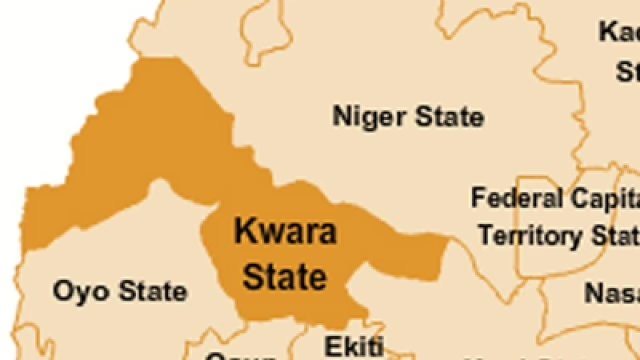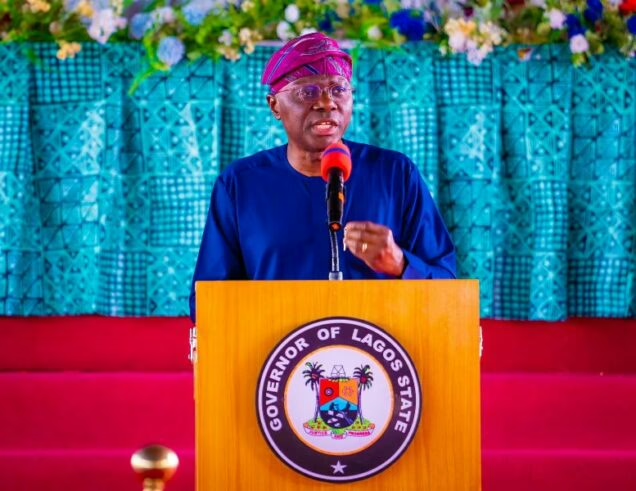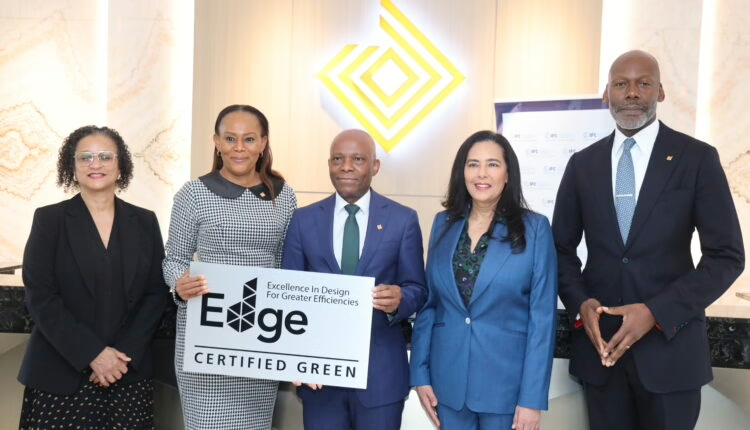Kayode Tokede
In line with its mandate to develop and deepen the Exchange Traded Fund (ETF) market, Nigerian Exchange Limited (NGX) in collaboration with Vetiva Capital Management Limited organized a capacity-building webinar to equip stakeholders with requisite knowledge of the ETF market.
The virtual event held recently and themed ‘Unlocking ETF Opportunities in Nigeria: Structuring and Application Process was designed to provide participants such as Brokers, Asset Managers, and other operators and intermediaries in the Nigerian Capital Market, with a comprehensive understanding of ETFs.
Additionally, the webinar aimed to provide insights on structuring exchange-traded funds (ETF) and the necessary documentation required for application to the Securities and Exchange Commission (SEC)
In his opening remarks, the Acting CEO of NGX, Mr. Jude Chiemeka noted that over the years, ETFs have gained more acceptability among institutional and retail investors worldwide due to their cost-effective approach to providing exposure to a diverse array of underlying asset classes.
“Since the inception of ETFs in Nigeria in December 2011, the market has grown steadily, with a total market capitalization of N35.76 billion as at April 2024.
“The Exchange currently offers 12 ETF asset classes, consisting of equity-based commodity and bond ETFs, providing investors with limitless opportunities to diversify their investments. We aim to further deepen the ETF market by providing an attractive environment to support listing additional ETFs, hence providing more investible products for investors. “
According to ETFGI, the global ETF industry is on an impressive growth trajectory, surpassing the $13 trillion mark in assets under management as of March 2024. This dynamic industry now encompasses over 12,127 products, listed on 80 exchanges across 63 countries, and provided by 741 ETF providers. Notably, March 2024 saw ETFs attracting net inflows of $144.94 billion, indicating a rising appeal to institutional and retail investors.
In March, Equity ETFs saw significant net inflows of $94.62 billion, contributing to a year-to-date (YTD) total of $235.75 billion. This marks a remarkable 678 percent increase compared to the same period in 2023 when net inflows stood at $30.31 billion. Meanwhile, Fixed-income ETFs have accumulated net inflows of $61.85 billion YTD 2024, while Commodity ETFs have reported net inflows of $1.15 billion over the same period.
Chiemeka emphasized that investors in Nigeria have an exceptional opportunity to diversify their portfolios and access various asset classes at reduced costs through ETFs listed on the Nigerian Exchange. He noted that the program aims to equip capital market stakeholders with insights into the ETF framework in Nigeria, covering aspects such as fundamentals, structure, operations, investment approach; and the step-by-step process for bringing ETF products into the market.
“The Exchange remains highly committed to providing an efficient, liquid and transparent market for investors and businesses across Africa, fostering access to capital and wealth creation. By unlocking the potential of ETFs, we can contribute to the development and growth of the Nigerian capital market, enhance investment opportunities, and ultimately drive economic prosperity”, Chiemeka added.
Also speaking at the webinar, Mr. Abubakar Habib, representing the Director-General of the Securities Exchange Commission (SEC), Mr. Emomotimi Agama, lauded the Nigerian Exchange Group (NGX) for organizing the event. He further emphasized that the Commission is collaboratively working with NGX, market participants, and industry experts, both domestically and internationally, to develop a robust framework for issuers and traders.
Addressing the prevailing market challenges, Habib expressed confidence in the expertise of professionals to devise effective solutions. He urged all stakeholders, including the Fund Managers Association, NGX, and other institutional investors, to actively promote the adoption of ETFs to deepen the capital market.
The Group Executive Director/COO of Vetiva Capital Management Limited, Damilola Ajayi, shed light on how investors can access the ETF market in Nigeria and monitor their investments. He delved into the intricacies of ETF structures, highlighting various ways current ETF issuers can deliver value to investors and how potential issuers can navigate the regulatory landscape led by the Securities Exchange Commission. Ajayi noted that while ETFs in Nigeria are still in their infancy stage, he encouraged issuers to continue investing in new and relevant products that allow clients to express their market views.
Highlighting the benefits of diversification and cost-efficiency offered by ETFs in mitigating investment risks, Ajayi stressed the industry’s responsibility to meet the demand for such solutions. With investors becoming increasingly sophisticated and investment product options expanding, ETFs typically boast lower expense ratios compared to traditional mutual funds, given their passive management approach.
Adele Hattingh, Manager, Business Development and Exchange Traded Products at the Johannesburg Stock Exchange (JSE) gave an overview of the South African ETFs market including why investors should consider investing in the various asset classes offered by JSE.











